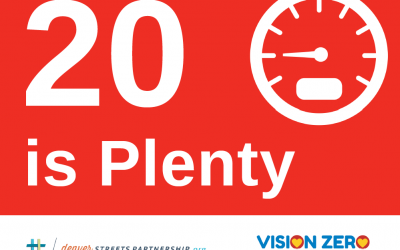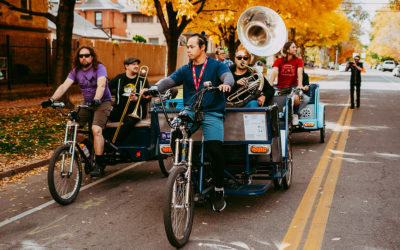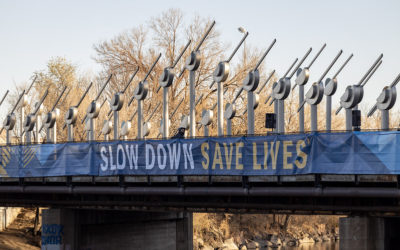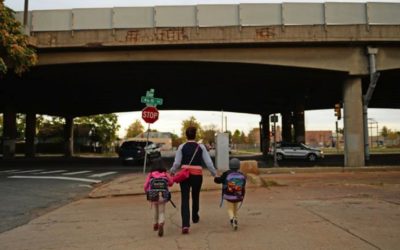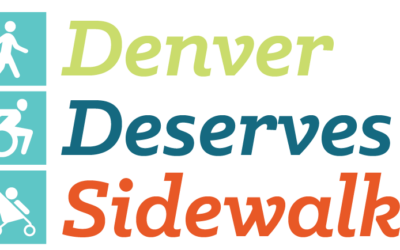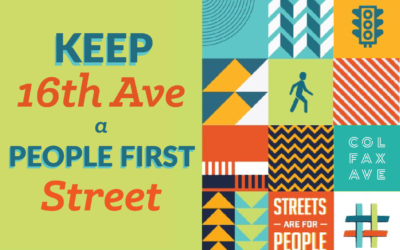- Home
- /
- Blog
- /
- Page 7
Blog
Remarks on Speed Limit Reduction for City Council Safety, Housing, Education & Homelessness Committee
The following remarks were delivered by Jill Locantore, Executive Director of the Denver Streets Partnership, on Wednesday, December 1, 2021, at Denver City Council's Safety, Housing, Education & Homelessness Committee. Good morning, I am Jill Locantore,...
Thank you for supporting these 2021 achievements
January – We spent the first pandemic winter helping small businesses transform parking lots to restaurant patios on East Colfax, Morrison Road, and the Little Saigon Denver district. We even made a video about it. February – The Lunar New Year celebration on South...
World Day of Remembrance 2021: Remarks from Jill Locantore
Good evening, I am Jill Locantore, Executive Director of the Denver Streets Partnership. Thank you all for coming together this evening with members of the Denver Streets Partnership, Denver City Council, and the Denver Department of Transportation and Infrastructure...
Decriminalizing Multimodal Transportation Panel Discussion
Click below to watch a recording of the Decriminalizing Multimodal Transportation panel discussion with leaders of color about walking, biking, transit, equity, and the law. Moderated by Dr. Lisa Calderon, with panelists Director Shontel Lewis of RTD District B,...
Denver Streets Partnership statement as Denver matches grim milestone for traffic fatalities
71 lives have been lost on Denver’s streets this yearFOR IMMEDIATE RELEASE — November 4, 2021Contact: Jill LocantoreExecutive Director, Denver Streets Partnership303.895.6376 | jill@denverstreetspartnership.orgThe Denver Streets Partnership is heartbroken and angered...
Our November 2021 Voter Guide
Election season is upon us and there is no shortage of ballot measures to consider. We want to lift up a few that we’re paying particularly close attention to here at DSP and hope you’ll consider casting the same votes! Question 2C Official ballot language Shall the...
Scope out new bike infrastructure with DSP!
On Saturday, September 18, the Denver Streets Partnership will host a Bike and Seek at Chaffee Park in Northwest Denver from 11 a.m. to 2 p.m. The event will celebrate the new bike infrastructure that Denver has installed with an interactive bicycle scavenger hunt...
We need bold action on climate.
The air has been on a lot of our minds this week. While it may be easy to simply blame our current air quality on wildfires, the truth is that these fires have become more prevalent as California’s climate has shifted to a drought condition. Without change, smoky...
Join the Denver Deserves Sidewalks campaign!
Creating an equitable and vibrant Denver means guaranteeing that our public spaces are designed for people. Human dignity should be the guiding principle for the design of our transportation system so that everyone can thrive and connect to what matters most. Today,...
Keep 16th Ave a people first street!
During the COVID-19 pandemic, Denver designated 16th Avenue between downtown and East High School as a Shared Street, designed to deter non-local vehicle trips and reduce speeds to create a safer environment for all ages and abilities to use the street for recreation...
Do you like to write? Would you like to write about a Denver or Colorado mobility issue? We’re seeking guest commentaries on the Denver Streets Partnership blog. Tell us your idea for a guest column.

